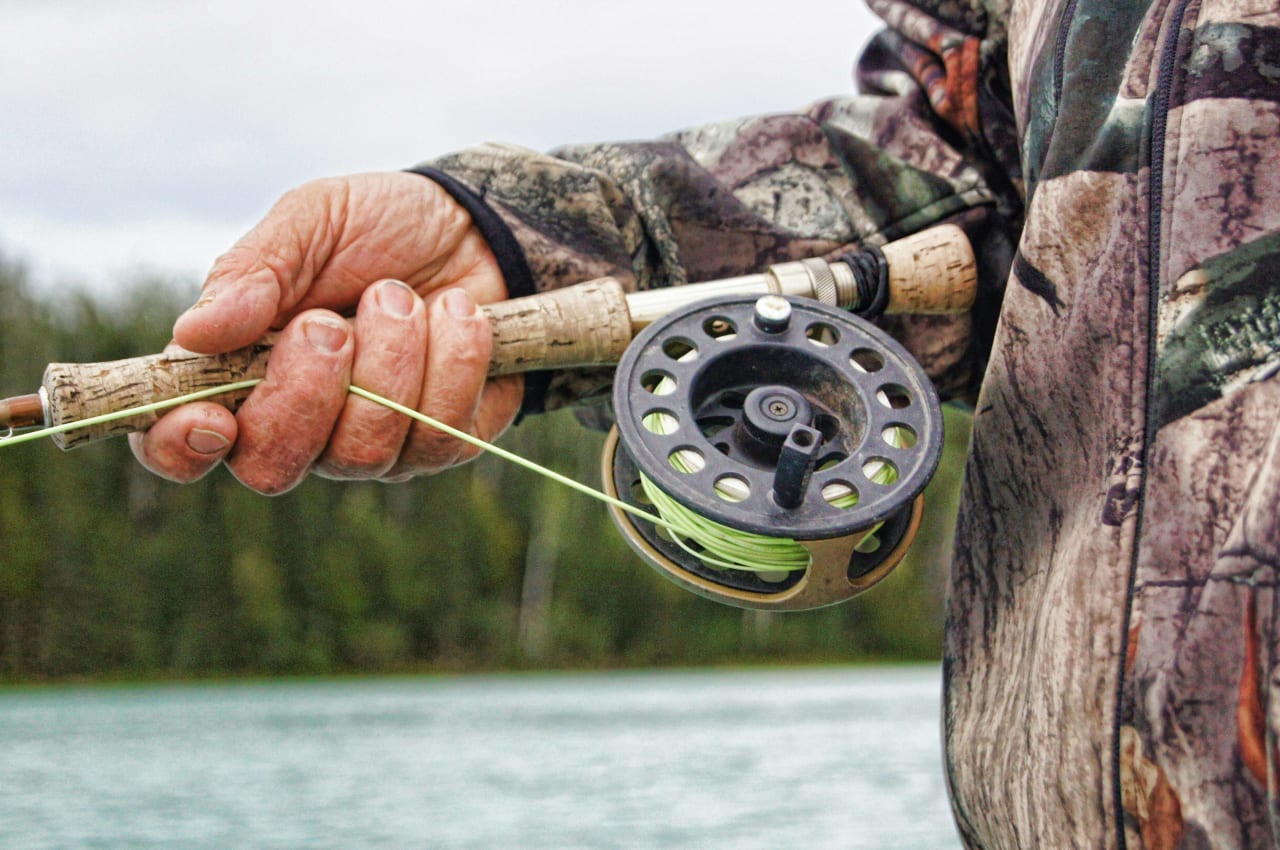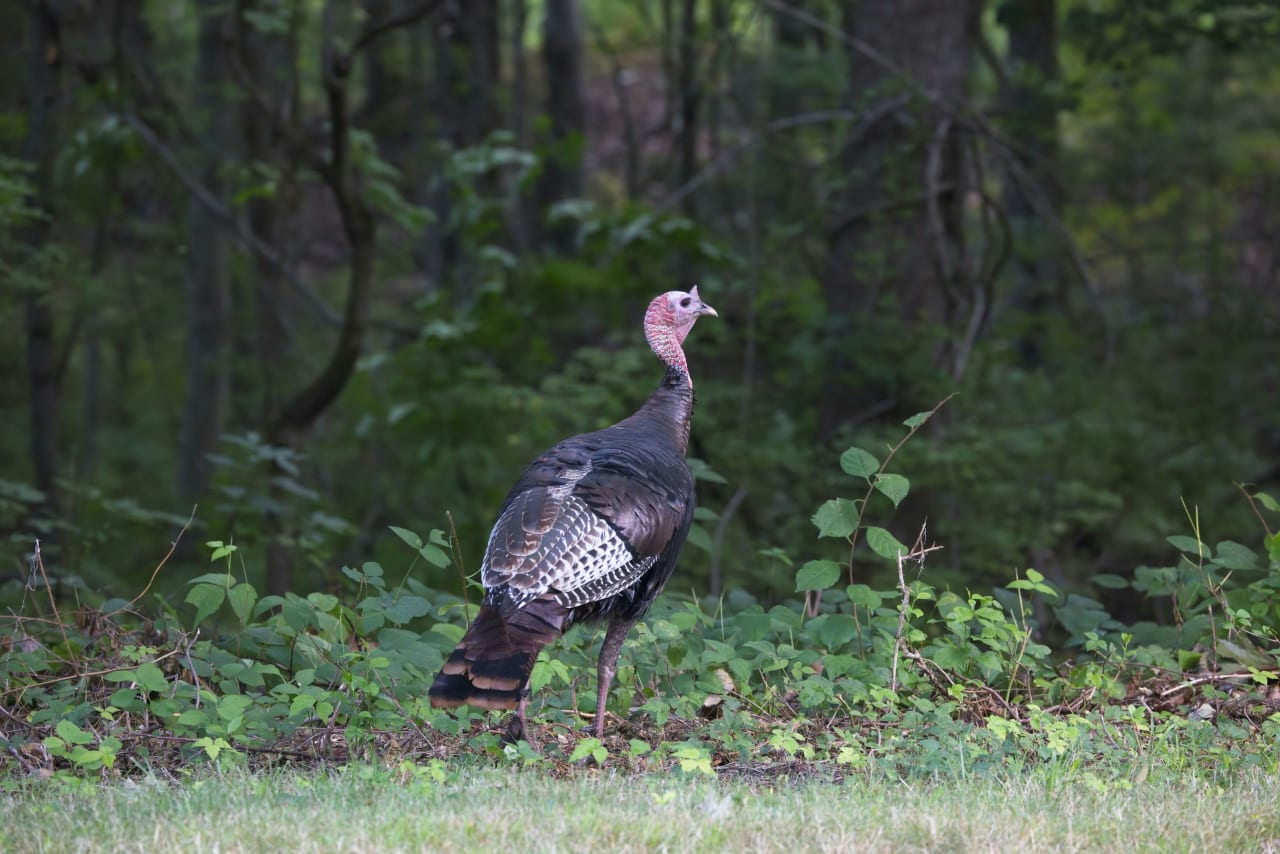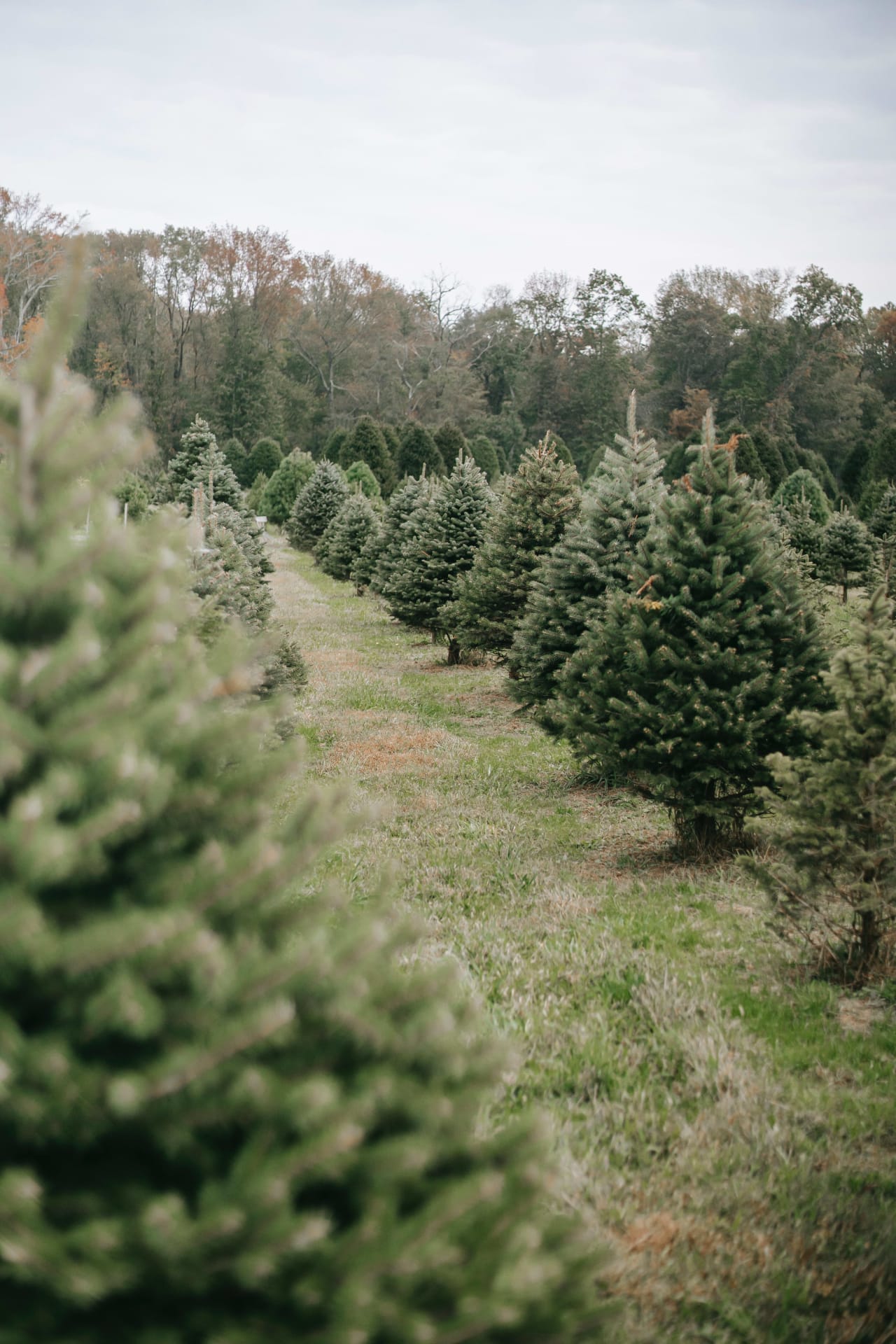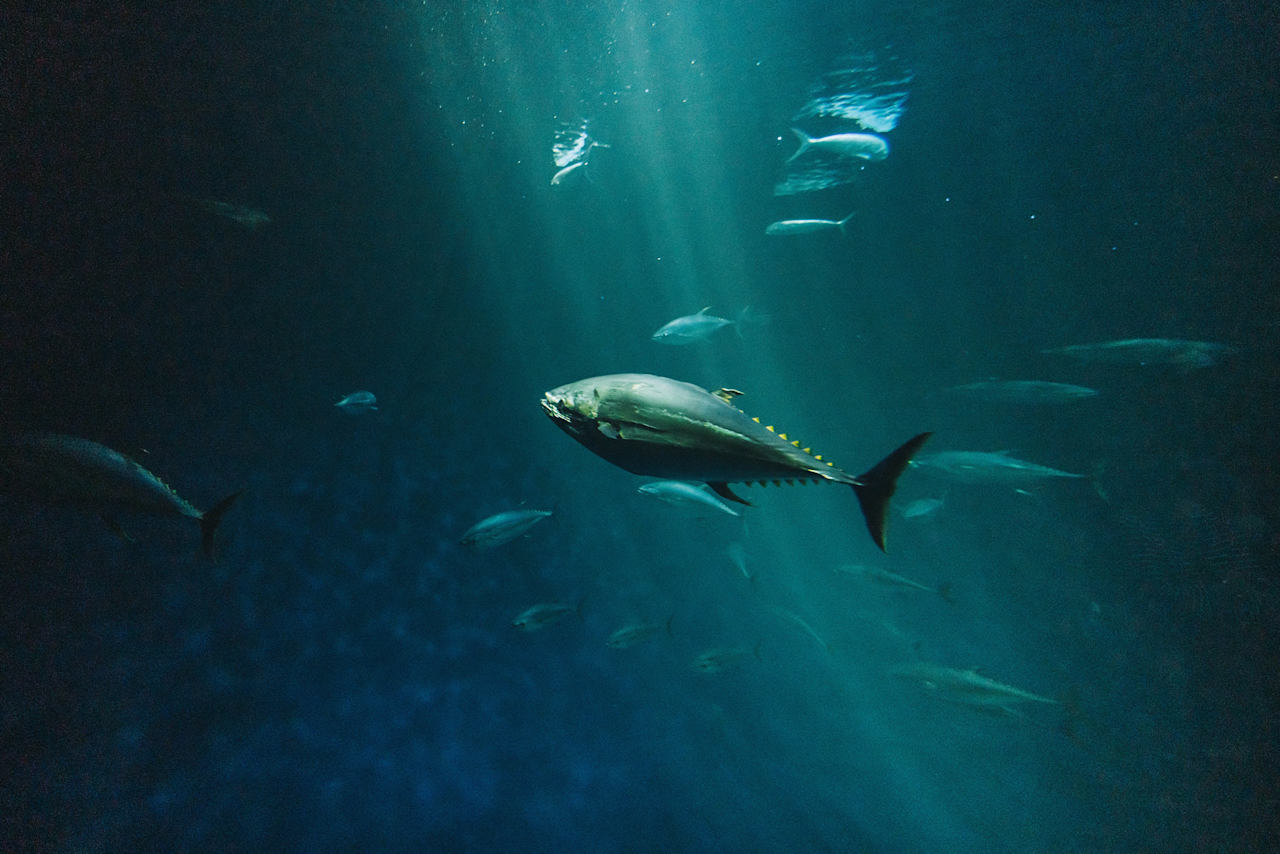Enjoying the Sport of Hunting with Dogs in North Carolina
North Carolina’s spectacular natural resources include an abundant wildlife population that provides opportunities for hunting and fishing throughout the year. And just as some individuals prefer hunting over fishing, or deer hunting to duck hunting, so it is that every sportsman – or woman – has his or her own style when it comes to hunting solo or with the aid of a hunting companion: a dog.
“Man’s Best Friend” Over the Millennia
Cave drawings from as long as 12-40,000 years ago have shown us that hunters were often accompanied by dogs. Our early ancestors had dogs – wolves, perhaps, although some dispute this – and were hunting with those animals even before they started using agriculture for survival. Hunted animals not only provided much-needed food, but materials for clothing and shelter as well. The success – and survival – of a hunter, so many eons ago, depended not just on his own abilities but the skill of his hunting companions. These dogs were often guard animals as well, and as this strong relationship grew over the centuries, dogs developed into true companions and family members – “man’s best friend”.
The Incredible Bond Between a Hunter and His Dog
The special place dogs enjoy in our lives as providers, companions, and loyal protectors is unique in itself, but many hunters will tell you that the innate, emotional bond between a hunting dog and his owner is the strongest relationship of all between humans and canines. The sense of trust and collaboration that develops between the two is described by some as almost spiritual in nature – a symbiotic relationship based on the highest level of understanding.
Born to Hunt
Certain breeds of dog are specifically born to the role of hunting dog. Other breeds do not typically have the instinct to perform well, although many mixed-breed canines are born with a hunting instinct. While ALL dogs who are successfully trained to hunt possess certain characteristics – a strong desire to work hard and to chase, athleticism, willingness to be trained, and endurance – an outstanding dog will chase and hunt with a unique, remarkable skill.
Generally speaking, a hunting dog has a powerful sense of smell, or he is very, very fast, or he is a combination of both. Hunting dogs can broadly be categorized into three groups.
- A hound either follows the scent of prey with his nose – a “scent hound” – or through visual contact – a “sighthound.” Scent hounds show a high level of endurance and often hunt in packs, typically cornering or treeing their prey until the hunter is able to catch up. A sighthound, on the other hand, is often very fast, and trained to chase and kill prey on his own.
- The gun dog, often used to hunt birds but also small animals, such as rabbits, is taught to find prey, bring it to its owner, and even remember where the prey that has been shot is located. He is specifically trained to find and to retrieve. Based on the dog’s ability, instinct and role in a hunt, most dogs can clearly be classified as a retriever, setter, spaniel, pointer or water dog.
- The role of a retriever is to bring back prey to the hunter after it has been killed. Retrievers are intelligent – often able to recall the locations of animals or birds that have been shot down even hours later – and are easily able to learn and recognize hand, verbal or whistle commands. The “retriever” category is broadly broken down into two breeds – Labrador Retrievers and Golden Retrievers.
- A Setter is distinctive in that he does not retrieve prey (usually birds), but he freezes into a very recognizable pose which indicates where prey is to be found. The setter’s actions are very much in tune with the hunter’s commands, and he will only locate birds and flush them out if he is commanded to do so. A few examples of setters are the English Setter, Irish Setter, and Gordon Setter.
- Spaniels are similar to setters in that their role is to locate and flush out prey. They are also extremely smart and are often used in conjunction with different types of hunting dogs in a hunt. Cocker Spaniels, Irish Water Spaniels, and Papillons all belong to the spaniel category.
- Pointers locate and point at prey as well, and ordinarily allow the hunter to kill the prey upon arrival. Some pointers will retrieve prey, but usually only one animal or bird at a time, and they are not typically able to recall where various hunted animals are located over a period of time. The family of pointers includes Wirehaired pointers, German Longhaired Pointers, and Old Danish Pointers.
- Water dogs are blessed with a high level of endurance and are specifically skilled in flushing out and retrieving all types of waterfowl. They are expert swimmers, born for the water. Some examples of water dogs are Newfoundlands, Standard Poodles, and Portuguese Water Dogs.
Interestingly, the state dog of North Carolina is one of only four state dogs in the United States that is native-born and bred: a hunting dog called the
Plott Hound. Developed by a German immigrant, George Plott, in the mid-1700s as an overall family dog – protector, hunter, loyal companion for kids and adults alike – he was and is particularly skilled as a wild boar and bears hound, with a remarkable courage, strength and superior hunting skills.
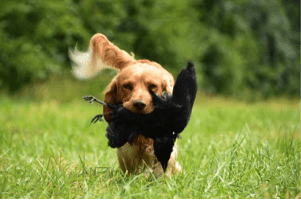
Legally Hunting with Dogs in the State of North Carolina
Finally, there are several regulations to keep in mind if you are interested in hunting with dogs in the State of North Carolina, including these particular laws.
- In Most counties, it is legal to hunt with the aid of dogs in North Carolina. Counties where this is not legal include Rockingham, Guilford, Randolph, Montgomery, Stanly and Union counties.
- It is against the law to hunt deer during the closed season, which includes any activities involving the training of hunting dogs. A hunting license is necessary for anyone training a dog for hunting.
- In 21 counties in North Carolina, it is illegal to use hunting dogs at all to hunt bears. It is also illegal to allow hunting dogs to run free in bear sanctuaries during a closed season.
- While most in-season animals and game birds may be hunted with the assistance of hunting dogs, it is illegal to use dogs at all during wild turkey season in North Carolina, which runs from early April through mid-May of each year. Feral swine – pigs living in the wild – have their own restrictions; dogs can only be used on game lands where the use of dogs in deer and bear hunting is allowed.
For more information on hunting regulations, hunting seasons, events, and wildlife-related resources, check out the North Carolina Wildlife Resources Commission’s website, at NC Wild Life.





